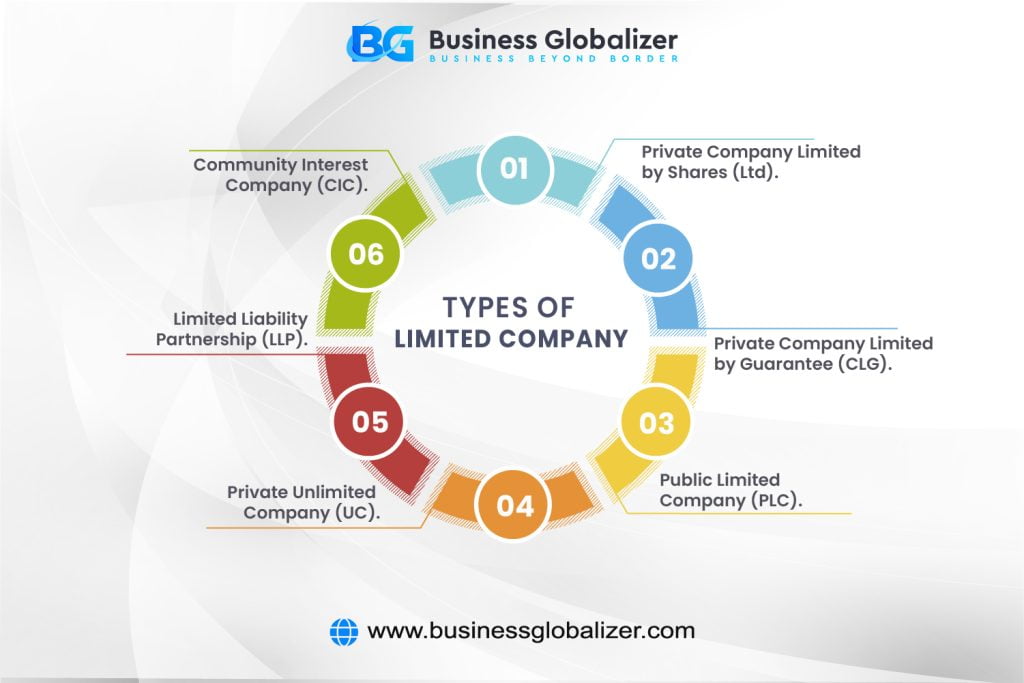Hello, there! Are you thinking of expanding your business globally? Or are you dreaming of starting a new one in Great Britain? If you are, you’ve probably encountered the term “Ltd” or limited company.
Now, “What is a Limited Company?” Well, a limited company is one of the most popular business structures in the United Kingdom, chosen by countless entrepreneurs. But before you jump headfirst into the world of Ltd, it’s important to understand its advantages and disadvantages.
In this blog post, we’ll look at this business entity, breaking down its pros and cons in simpler terms. So, whether you’re an aspiring business owner or simply curious about the inner workings of limited companies, keep reading to discover the perks and pitfalls of this widely embraced UK company structure.
What Is a Limited Company and How Does It Work?
A limited company is a common structure when establishing a business in the United Kingdom. A limited company, also known as an “LTD” or “Ltd,” is a business entity legally recognized as a separate legal entity from its owners. The owners are called shareholders, and those who run it are known as directors. The defining feature of a limited company is that its liability is limited to its assets.
All limited companies must be registered with Companies House and assigned a unique company registration number in the UK. It must have either Ltd. or Limited at the end of its company name, which the founders can choose. This gives the company a “legal personality” distinct from the people who run it. A limited company has the same legal rights and responsibilities as an individual.
Ltd or limited company is a corporate structure available in the U.K., Ireland, and Canada.
In a limited company, shareholders’ liability is limited to the capital they originally invested. If such a company becomes insolvent, the shareholders’ assets remain protected.
How Does It Work?
To form a limited company, you must complete some paperwork and submit it to Companies House, the UK’s registrar of companies. You must also appoint at least one director and shareholder. Your limited company will be incorporated after you have filed the paperwork and appointed the directors and shareholders.
Characteristics of an Ltd or Limited Company
There are various types of limited companies, but they all share the same main characteristics. Take a look below:
- The key feature of a Ltd company is that its members have limited liability.
- All limited companies in the UK must be registered with Companies House and assigned a unique company registration number.
- An Ltd must have both directors and members. All members are shareholders unless there is a guarantee-based limit on the company.
- An Ltd is a legal entity, also called a “legal person,” with its own legal rights and responsibilities separate from those of its members and directors.
- An Ltd has the legal right to the money it earns from sales and can keep its profits.
- The company’s property is its own and is not considered the property of its shareholders or directors.
- The company can enter into contracts, hire people, sue, and be held accountable if it commits criminal offenses.
Limited Company Examples
Examples of Limited company are given below-
- Google UK Limited.
- AstraZeneca PLC.
- Barclays PLC.
- Marks & Spencer Group PLC.
- Vodafone Group PLC.
Types of Limited Company
Limited companies come in a variety of shapes and sizes. They are listed below:
Private Company Limited by Shares (Ltd)
- A private company limited by shares is the most common type of limited company structure for profit-making. It is owned by shareholders and managed by directors. You can be the sole owner and director of the company or have multiple owners and directors.
To set up this type of company, you need to issue shares, which represent portions of the business. Each shareholder agrees to buy one or more of these shares, which determines their ownership stake and the amount of money they have to invest. If the company can’t pay its debts, shareholders are responsible for contributing the value of their shares to cover the liabilities. The more shares a shareholder has, the more liable they are financially.
Private Company Limited by Guarantee (CLG)
A private company limited by guarantee is usually for good causes, like charities or sports clubs. It doesn’t have an owner, and any money it makes goes back into the organization or its goals. People who are members of this kind of company can’t buy any part of it like they would in other companies.

Advantages and Disadvantages of a Private Limited Company
The advantages of a Private limited company are-
- Limited Liability: A private limited company’s shareholders are only liable for the company’s debts up to the amount of their investment. This means that their personal assets are safe if the company goes bankrupt.
- Separate Legal Entity: A private limited company and its shareholders are different legal entities. This means the company can own property, sign contracts, sue or be sued in its own name, and sue or be sued.
- Ease of Getting Money: Private limited companies can get money from investors by giving them shares. This could help the business grow or pay for new projects.
- Credibility: Private limited companies are often more trustworthy than other business structures, such as sole proprietorships or partnerships. This is because they have their own legal identities, and the liability of their shareholders is limited.
The disadvantages of a private limited company are given below-
- Administrative Burden: Private limited companies must comply with several legal and regulatory requirements. This can significantly increase the administrative burden of running a business.
- Cost of Formation: Forming a private limited company can be more expensive than other business structures. This is because there are legal and regulatory requirements that must be met.
- Ownership Restrictions: A private limited company can only have 50 shareholders. This may limit the company’s ability to raise capital or attract new investors.
Public Limited Company (PLC)
A public limited company or PLC is a business that sells shares to anyone on the stock market. It must have at least £50,000 worth of shares to be a public limited company. These companies are usually for bigger and better-known businesses. They must have at least one person who owns shares, two directors, and a qualified company secretary.
Public Limited Company Advantages and Disadvantages
A public limited company, or PLC, is a type of business whose shares are available for purchase by anyone and traded on a stock exchange. PLCs have a few advantages over other types of companies, including-
- Greater Capital Access: PLCs can raise capital by issuing public shares, a substantial funding source for growth and expansion.
- A Larger Shareholder Base Can Help to Reduce Risk: Because a PLC’s ownership is spread across a large number of shareholders, it can help to reduce the risk of any single shareholder having too much control over the company.
- Prestigious Profile and Confidence: Being a PLC can help a company’s profile and attract customers and investors.
- Share Transferability: Shares in a PLC can be easily transferred, allowing shareholders to exit their investments more easily.
However, there are some drawbacks to forming a PLC, which include:
- Increased Regulation: PLCs face more regulation than other types of businesses, which can raise the cost of doing business.
- Control Loss: The shareholders are the owners of a PLC, and the company’s directors are accountable to them. As a result, the founders of a PLC may lose control of the company as it grows.
- Short-Termism: The need to meet shareholder demands can sometimes lead to PLCs taking a short-term view of their business. This can be at the expense of long-term planning and growth.
Private Unlimited Company (UC)
A limited company that does not have limited liability is called a private unlimited company. This means that the shareholders of a company with no limits are personally responsible for the company’s debts. Unlimited companies are rare.
Private Unlimited Companies can share less information about their business than other companies because the investors could be responsible for paying any debts the company can’t pay.
Advantages and Disadvantages of Private Unlimited Company
The advantages of a private unlimited company (UC) are given below:
- More Adaptability: UCs are more adaptable than limited companies in structure and management. For instance, UCs are not required to have a board of directors.
- Easier to Raise Capital: Because investors are more willing to invest in a company where the shareholders have unlimited liability, UCs may be able to raise capital more easily than limited companies.
- More Control: Private unlimited companies are not subject to the same regulations as limited companies; shareholders have more control over the company.
Disadvantages
- Liability: A UC’s shareholders are personally liable for the company’s debts. If the company goes bankrupt, the shareholder’s personal assets may be forfeited.
- Less Credibility: Because investors may be concerned about the risk of unlimited liability, UCs may be viewed as less credible than limited companies.
- More Difficult to Set up and Run: UCs are more difficult to set up and run than limited companies. This can be a disadvantage for newly established businesses.
Limited Liability Partnership (LLP)
A limited liability partnership is like a regular business partnership but with one important advantage: it limits the financial responsibility of the partners. In a normal partnership, the partners are fully responsible for the business debts, which puts their personal finances at risk if the partnership struggles or goes bankrupt. However, in an LLP, the partners agree to contribute a set amount towards the debts if the partnership cannot pay its bills. These contributions determine the maximum amount the partners can be held personally liable for.
Advantages and Disadvantages of a Limited Liability Partnership
The advantages of LLPs are-
- Adaptability: LLPs are more adaptable than other business entities, such as corporations. This is because LLPs are not required to have a board of directors or shareholders. Instead, the partners have complete control over the LLP.
- Tax Advantages: Because LLPs are taxed as partnerships, the partner’s share of the LLP’s profits is taxed at their individual tax rates. This can be advantageous for partners in a high tax bracket.
- Credibility: Limited liability partnerships (LLPs) are frequently more credible than other types of businesses, such as sole proprietorships or general partnerships. Limited liability partnerships (LLPs) provide investors and customers with limited liability protection.
Disadvantages
- Public Disclosure: Because LLPs are required to file public accounts, the financial information of the partners is not as private as it would be with other types of business entities.
- Not Suitable for All Businesses: LLPs may not be appropriate. LLPs, for example, may not be a good option for businesses that need to raise a large amount of capital or operate in a high-risk industry.
- Community Interest Company (CIC)
This type of LTD company is a non-profit organization designed to benefit the community rather than shareholders. It must have a social purpose and reinvest its profits to fulfill that purpose.
CICs are a type of corporate body similar to limited companies but with the additional restriction that their assets can only be used for the benefit of the community.
Advantages and Disadvantages of Community Interest Company
The advantages of CICs are given below:
- Tax Advantages: CICs may qualify for tax advantages such as corporation tax relief and exemption from stamp duty land tax. This can assist in lowering the overall cost of running a CIC.
- Public Benefit: CICs are required to have a clear social purpose and to use their profits to benefit the community. This can provide CICs with a competitive advantage when applying for grants or other forms of funding.
Disadvantages
- Regulatory Requirements: CICs are subject to many regulatory requirements, including the filing of annual accounts with Companies House. This can be time-consuming and costly.
- Lack of Awareness: CICs are still a relatively new type of business entity, and the general public is unaware of their existence. This can make attracting customers or investors difficult.
Important Things to Note:
- Private limited companies that use the suffix “Limited” or “Ltd,” whether limited by shares or by guarantee.
- A public limited company must have the letters “PLC” or “Public Limited Company” at the end of its name.
- Companies Act 2006 applies to both private limited companies and public limited companies.
- The Companies Act of 2006 and the Limited Liability Partnerships Act of 2000 govern private companies limited by guarantee.
- The Companies Act of 2006 applies to unlimited companies.
- Community interest companies use the suffix “CIC.”
Which Limited Company Should I Choose?
The type of limited company you choose will be determined by the size and structure of your business, as well as your personal requirements. Here are some factors to think about when making your decision:
- Size of Your Business: If you are launching a small business, a private limited company (Ltd.) is most likely the best option. PLCs are better suited for larger companies that need to raise capital from the general public.
- Structure of Your Business: If you intend to have multiple shareholders, a private limited company is the best option. PLCs are only appropriate for businesses with a single class of shares.
- Individual Requirements: Both private limited companies and PLCs provide limited liability protection. PLCs, on the other hand, are subject to more regulation, which may be an issue for some businesses.
If you are unsure about which type of limited company is best for you, speak with an accountant or a lawyer. Business Globalizer is here to help you with premium business consultation and excellent UK company formation packages.
We can assist you in determining your specific requirements and recommending the best option for your company.

Wrapping Up
Setting up a UK limited company, or Ltd. has both advantages and disadvantages. On the one hand, it offers liability protection for its owners, a separate legal identity, and access to various tax benefits. On the other hand, it comes with higher administrative costs, stricter regulations, and reduced privacy.
When deciding whether to form a Ltd, it is essential to consider your specific business needs and goals. Consulting with a professional advisor can also help you weigh the advantages and disadvantages of the Ltd structure.






